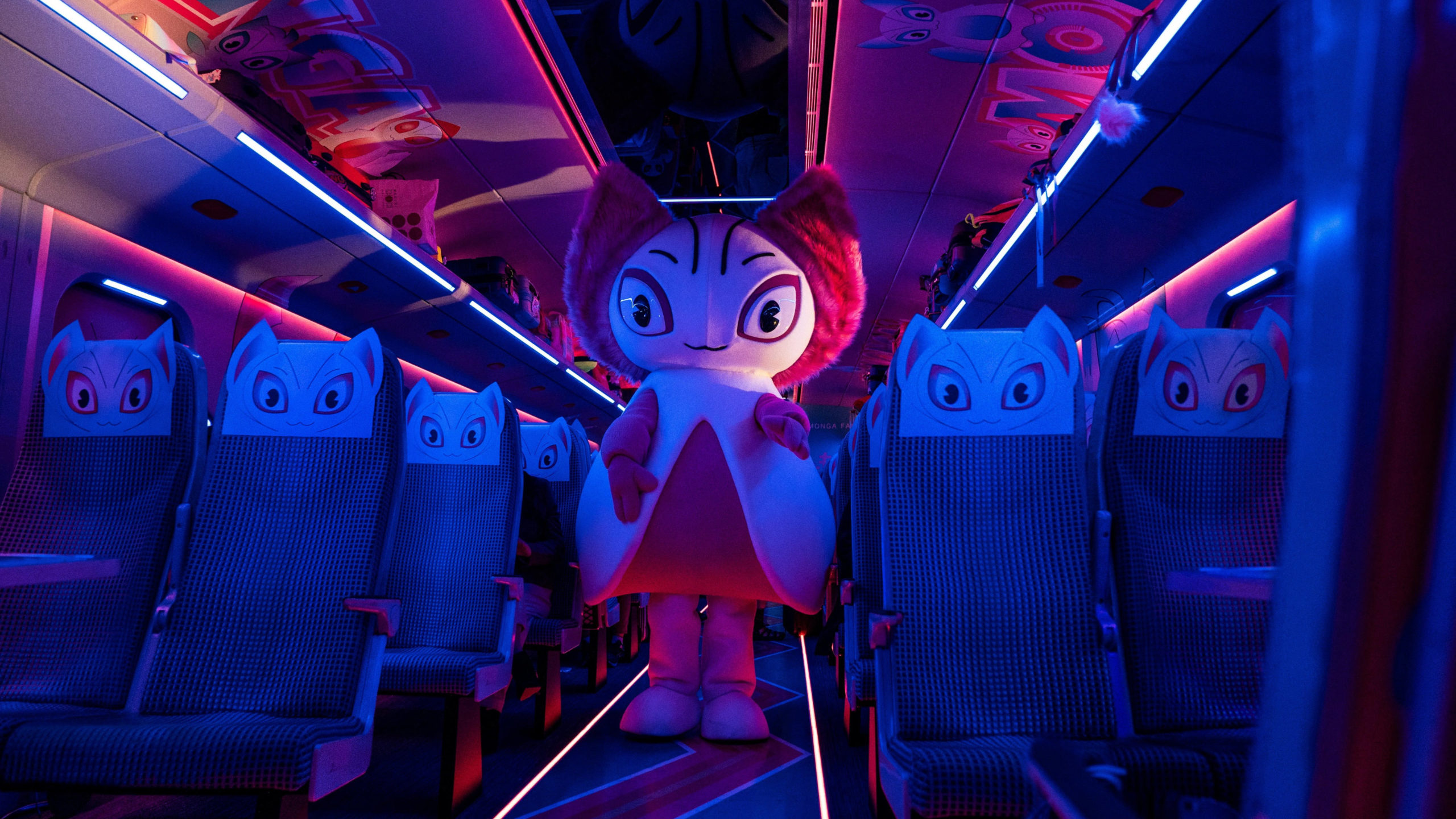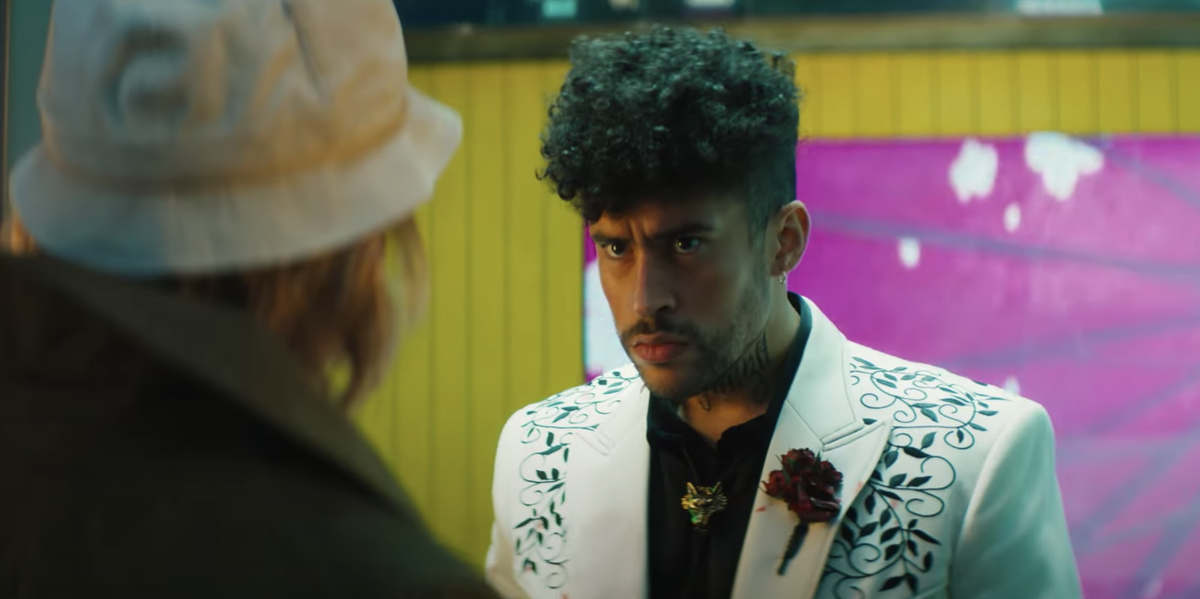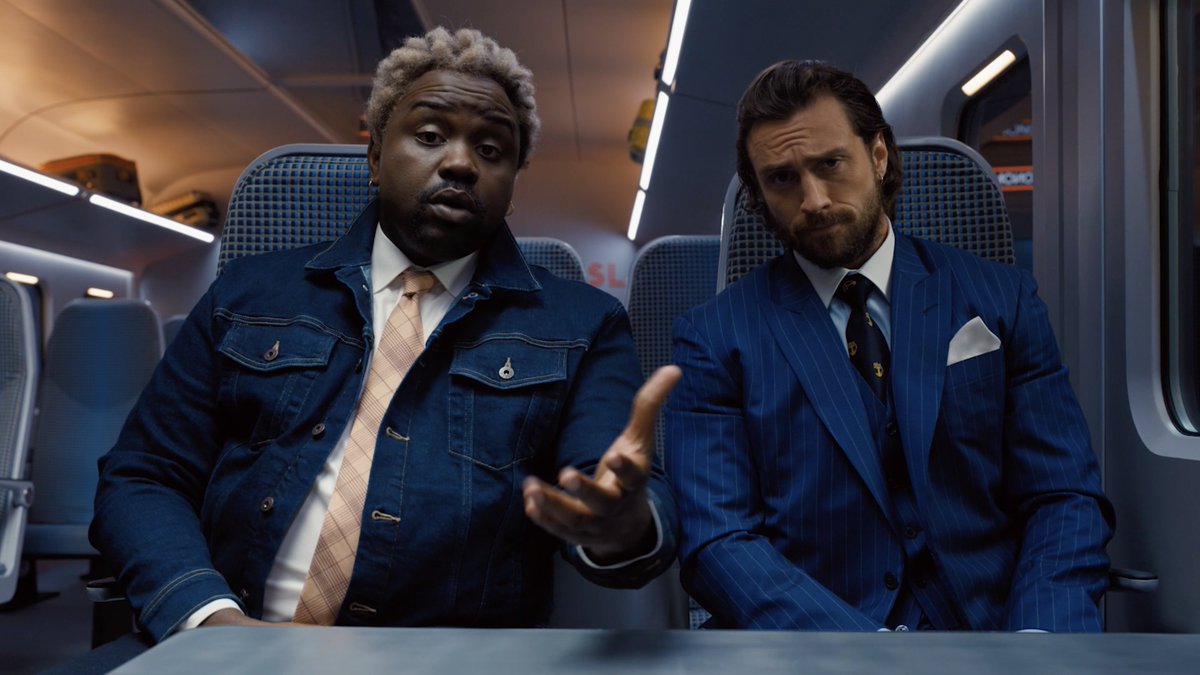The Last Duel: Examining Modern Rape Culture in Medieval Times
The Last Duel is about rape. Although the film delves into rape culture in medieval Europe, there are many striking similarities to modern rape culture.


Aboard a bullet train in Japan, a group of assassins from all over the globe converge as they realize their missions have something in common. These characters are quirky, deadly, and diverse. Yet, they all seem to be some type of caricature, which is a symptom of the movie’s overall shallowness. While Bullet Train is fun and action-packed, it’s also packed with stereotypes that don’t make for the best representation.

Bullet Train is actually adapted from the original Japanese novel entitled Maria Beetle by Kōtarō Isaka. In the book, all of the characters are presumably Japanese (there are only a few non-Japanese names, but they are code names such as Maria and Lemon). However, only one of the main assassins is Japanese in the movie, and he’s more of a supporting character. Brad Pitt stars as the main assassin, Ladybug. It’s not a good sign to center a white man instead of a Japanese one when the entire movie takes place in Japan. The setting doesn’t feel like it truly takes place in Japan, but rather a fantastical Japan-esque world cultivated in the mind of a white Westerner.
As such, exoticization and fetishization of Japanese culture abound in dialogue, character types, and more. For example, Ladybug makes several comments about wishing to visit a temple or garden where he can relax, indicating that he sees Japan as more of an exotic escape than anything else. What the movie does depict about bullet trains and Japan contains many mistakes Japanese fans spotted in the movie’s trailer alone. Some of these include errors in Japanese signage and the existence of a “quiet car” that is not real in Japan. In an interview with AsAm regarding the whitewashing in Bullet Train, David Inoue, Executive Director of the Japanese American Citizens League, called the setting a “caricature” of Japan. He noted it has the stereotypical “neon Tokyo backdrop,” “ominous-looking yakuza,” and more that many Western movies romanticize.
The number of white people and overall non-Japanese people in the movie is astounding. Beyond the main cast of assassins—whose ethnic and racial diversity may be forgivable given they come from all over the world—many of the passengers aboard the train and the goons for the main villain are white. It makes no sense given that Japan is notoriously anti-foreigner. According to a 2020 population census, less than 2% of Japanese citizens are foreigners, and most of that population is from other Asian countries like China and Korea. It’s deplorable to see these groups sidelined in a film centering on their home. The main cast of characters, while not all white, are still almost all Westerners.

Although there is some diversity in the main cast of assassins, many of them still play racial stereotypes. Benito A. Martínez Ocasio aka Bad Bunny stars as The Wolf, a Mexican assassin who’s looking for revenge. The Wolf’s dramatic backstory is presented like a telenovela with love, death, and the cartel. The Wolf is a classic stereotype of a cartel-involved, macho Latino. Bad Bunny is also horribly underused in this movie in a way that makes the ad campaign feel like a betrayal.
Other POC characters who are stereotypes include The Hornet (Zazie Beetz), The Elder (Hiroyuki Sanada), and the Concession Girl (Karen Fukuhara). Like Bad Bunny, Zazie Beetz is underused to the point where her role could be considered a cameo. Her character is basically an angry Black woman who says “b*tch” at the end of everything. The Elder is the stereotype of the wise Asian mentor. He gives guidance to others via long-winded, somewhat confusing metaphors and anecdotes that come from his culture. Finally, the Concession Girl is the only Japanese woman in the movie with a speaking role, but her character is the stereotype of a subservient, polite Japanese woman. Karen Fukuhara is also wasted in this role (you can catch her being much more of a badass in The Boys).
The standout character among all the assassins is Lemon (Brian Tyree Henry)—one half of the hilarious (and surprisingly touching) duo Lemon and Tangerine (Aaron Taylor-Johnson). He’s the only Black male character in the whole movie and luckily doesn’t feel like a stereotype. Lemon’s whole gimmick is that he’s obsessed with Thomas the Tank Engine. The Thomas jokes are nearly run into the ground yet Henry’s performance manages to sell it every time. His character is also the only one to verbally acknowledge race in the movie—he makes jokes about white characters that are genuinely funny. He is one of the best characters in the film.

Bullet Train is silly, for one thing. The dialogue, the characters, and some of the deaths are so silly that it might turn off some viewers. For others, the relentless banter between characters will be a balancing reprieve to the violence. Bullet Train has plenty of action that won’t leave action lovers bored or wanting. The fight scenes are creative and fun, and there’s plenty of gore shown off as well.
With such a large cast of characters, plot threads tend to get confusing. Bullet Train is no exception. David Leitch’s choice to constantly zigzag between flashbacks and present day makes the current story harder to follow, and some viewers may be lost by the finale. The film starts to feel long as it nears its end. Maybe some characters and flashbacks are unnecessary to the story, though it is overall somewhat charming. If you’re looking for something mindless and action-packed, Bullet Train should quench your thirst.
Bullet Train is in theaters now.
Related lists created by the same author
The Last Duel is about rape. Although the film delves into rape culture in medieval Europe, there are many striking similarities to modern rape culture.
Related diversity category
A lot of us are emotionally impacted by the current pandemic. So, while we’re all stuck here in our homes, it’s great to put on a movie to ease the stress. With that, I made up a small list of some of my favorite feel-good movies.
Related Movie / TV / List / Topic
'The Worst Person In The World' follows a part of life I don't see often portrayed on-screen: extended adolescence.